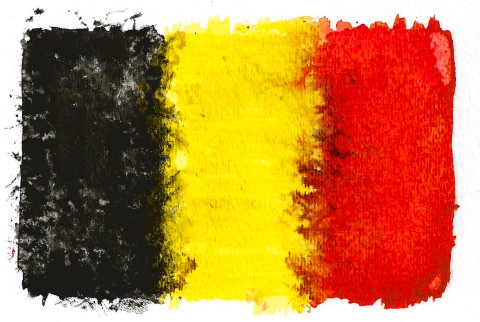STÉPHANE GÉRARD
As citizens of a global community, with access to numerous resources unavailable to others, university students have a responsibility to be as prepared as possible to facilitate healthy dialogue in the aftermath of traumatic events.
On the morning of Mar. 22, I was shaken by the news of a terrorist attack on a busy subway in Brussels, Belgium, which killed around 30 civilians and wounded many others. It is reported that ISIS has claimed responsibility for the attack.
Sheltered at the University of Saskatchewan, in a country where acts of this nature are considered a distant phenomenon, I began to sort through my emotions. I was, of cou rse, deeply saddened by the news and uncertain about the source of the cultural tensions which brought it about.
rse, deeply saddened by the news and uncertain about the source of the cultural tensions which brought it about.
Seeking to understand how those with more immediate concerns were feeling about this tragedy, I looked at the comments arrayed beneath a social media post. As I looked for perspective on the Brussels attack, I cameacross a dialogue that seemed worthy of special consideration for our university community.
The original discussion was a debate over how western media had labelled the attacks as the work of “Muslim terrorists.” As I followed the discussion for some distance, the definition of the term “Muslim terrorist” was called into question.
Were those behind the attacks being labelled as Muslims, or were these Muslims being labelled as terrorists? Did it make a difference? I was especially keen to read the comments by those claiming to be Muslim themselves, and there I found a general consensus.
The difference between a “regular terrorist” and a “Muslim terrorist” was that the religiously-affiliated group was understood to be committing acts with the intention of promoting the agenda of a doctrine — as ISIS does, with one of its stated goals being the sphere of Sharia law.
While I found this distinction important, discussion soon turned to what role the Muslim faith had, exactly, in the development of this particular event. This question is one of particular importance for students and faculty in post-secondary institutions, as misconceptions thrive on incomplete information.
Among the messages of understanding and support from Muslim voices was a near-universal denunciation of these acts as un-Islamic, an assertion that to be Muslim was to strive, fundamentally, for peace.
In light of these comments, I began to wonder: what message, in fact, was ISIS so moved to impress upon Europe and the western world?
How can we understand other human beings who feel that they have been pushed to the last resort of physical violence in order for their position to be taken in earnest? The answer is simple in principle: we must be prepared to appreciate the perspective of another worldview.
In practice, this amounts to building open-mindedness by learning about other cultures and beliefs. I know that my own knowledge of the delicate subjects involved is woefully inadequate, but I take some small measure of satisfaction in the fact that I could at least distinguish ISIS as one of a minority of more radical groups within Islam thanks to a modicum of exposure to the faith.
It may not be much, but it is a step along the path to understanding. I fell short on comprehension, however, when this attack occurred, which is a reminder that we — the privileged few who benefit from the support of an institution of higher learning — must always strive to take the next step on that path.
Violence, in general, seems to occur when communication has been unsuccessful, and failed communication itself seems founded on insufficient information. So please, I urge you to take an introduction to world religions elective with one of our wonderful U of S professors, to take out a book from our well-supplied university or public libraries, to broach the subject with your classmates or even just to spend a few minutes online asking your own questions.
Every morsel of understanding is valuable in the quest to keep civil interaction possible in our increasingly global society.
As for myself, I plan to spend a little extra time this week scanning opinions on Al-Jazeera, to see what the Arabic media have to say on the subject.
—
Image: Jeremy Britz / Graphics Editor